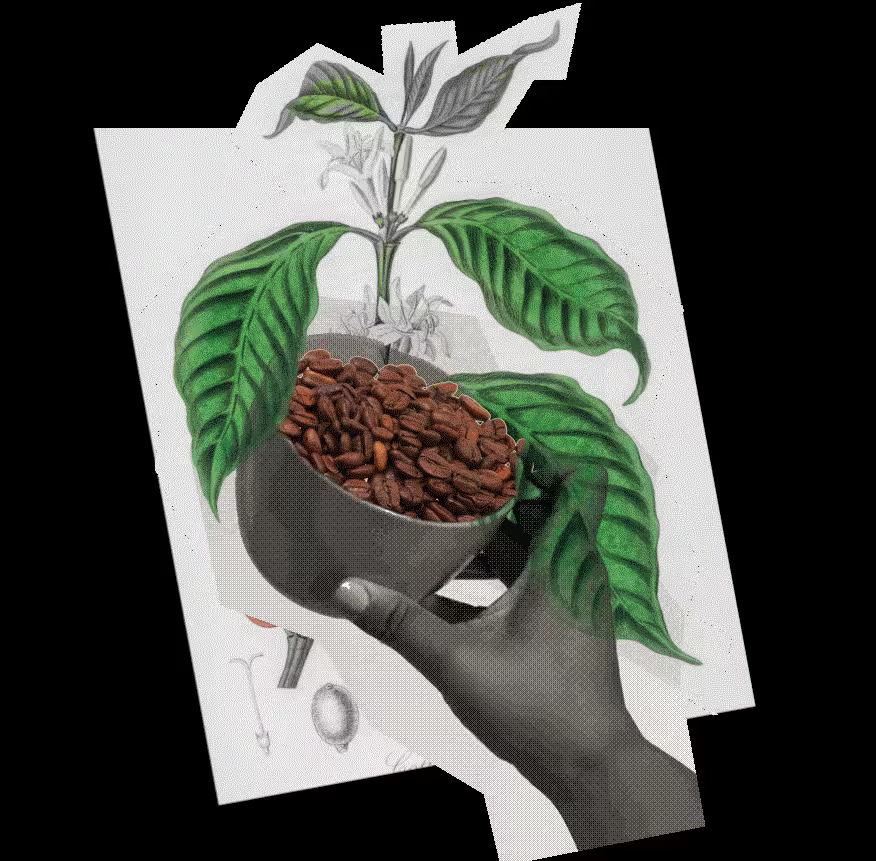A Climate Conversation over Coffee | Part 1
A case study by Shannon Colin
May 24, 2024
Key Takeaways
- The Arabica coffee plant faces significant threats from climate change. World Coffee Research (WCR) is addressing these challenges by developing new plant varieties that are climate change-resilient.
- World Coffee Research collaborates with international partners through initiatives like the International Multilocation Variety Trial (IMLVT) and the Innovea Global Coffee Breeding Network. These programs aim to accelerate the development of resilient coffee varieties.
It all begins with a plant
Arabica coffee beans are by far the most popular beans consumed globally. Warmer temperatures, changes in rainfall patterns, an increase in pressure from pests and diseases, and other factors threaten the production of Arabica coffee. This isn’t just bad news for those who love our morning fix, but most especially for the farmers whose livelihoods depend on coffee.
This is where World Coffee Research is stepping in. WCR is uniting the global coffee industry to secure a diverse and sustainable supply of quality coffee today and for all future generations. How? Through plant variety development.
We had the pleasure of speaking with Katie Carguilo, who serves at the unique intersection of being a Board Member for World Coffee Research, a Coffee Manager at Counter Culture Coffee, and a US Barista Champion.
When asked about WCR’s work, Katie shared,
It’s all about the plant. We can secure the future of coffee by innovating and updating the most important piece of technology the coffee industry has, which is the plant itself. Start at the source, and make solutions for the plant to adapt to a changing climate. WCR aims to avoid coffee consolidation and ensure diversification of flavors, countries, and experiences to sustain the culture of coffee into the future.
Global solutions require global partners
Katie discussed several WCR projects, including the International Multilocation Variety Trial (IMLVT) and Innovea Global Coffee Breeding Network. IMLVT is a longitudinal study. WCR sent 31 bean varieties from around the world to 29 test plots in 18 countries, resulting in 50,000 plantlets. The same plants were grown and nurtured according to local practices. WCR researchers then measured the yield (how many cherries each coffee plant grows) and the quality (with blind cupping).
This work helps build the catalog of plant varieties that farmers can use. Instead of simply relying on old strains of Arabica that were used for any number of reasons (historical and generational legacy, colonialism, family history, luck of the draw), farmers can use the IMLVT results to understand new or different bean varieties that can thrive in their local environment, with climate change in mind. While there are 100 coffee bean varieties today, WCR aims to release another 100 bean varieties by 2030.
The Innovea program unites nine global partners across Costa Rica, USA, India, Indonesia, Kenya, Mexico, Peru, Rwanda, and Uganda. Together, these collaborators represent 23% of the world’s arabica coffee exports. Each country shares resources, tools, technology, and data to increase the speed of coffee innovation. They test new trees for resilience to climate change. They aim to shorten the coffee breeding cycle to 15-20 years (from 20-30 years). All of their efforts aim to accelerate the pace of genetic improvement. Diversifying plant genotypes helps everyone find the right coffee plants that will thrive in their own unique environments, leading to higher and more resilient yields for all.
There’s a reason why the Sustainable Development Goal (SDG) #17 is Global Partnerships. While the coffee industry is fragmented and has room to improve its carbon footprint, players like WCR are unifying people around the world to ensure a future where everyone can drink sustainable, delicious coffee at a fair price for everyone involved.
And this brings us to Part 2 of our Conversation over Coffee: Lessons in Sustainable Sourcing.






